Cognitive Development \ 1-1

Our Brain Development book has been written by scientists who are experts in their field and have many works in the national and international literature. In the book, which consists of twenty-one chapters, the basics of the brain and nervous system, genetic, structural and functional features, environmental factors such as nutrition, sleep, music, socioeconomic level, education and technology, which are known to have an effect on brain development, brain imaging studies and neuropsychological tests are discussed.
The human brain is a vital organ that begins to develop in the third week of pregnancy. It develops at an extraordinary rate during early childhood and adolescence and forms the basis for all human development and life.
We present our book, which we hope will meet the need for Turkish resources in all disciplines with the subject of "brain", to the appreciation of faculty members working in the field of brain development, university students and all readers who want to have in-depth knowledge on this subject.
The human brain is a vital organ that begins to develop in the third week of pregnancy. It develops at an extraordinary rate during early childhood and adolescence and forms the basis for all human development and life.
We present our book, which we hope will meet the need for Turkish resources in all disciplines with the subject of "brain", to the appreciation of faculty members working in the field of brain development, university students and all readers who want to have in-depth knowledge on this subject.

In this book, concepts that form the basis of cognitive development such as executive functions, memory, perception, intelligence and metacognition are thematically examined and the support of these concepts according to age periods is discussed. The foundations of cognitive development and its relationship with other fields are emphasized theories to explain cognitive development, neurodevelopmental disorders in the context of cognitive development and evaluation of cognitive development are included.

The baby, who has been interacting with other people since birth, communicates with these people through increasingly complex codes throughout his development. By climbing the developmental stages, the child acquires a set of skills ranging from eye contact to babbling, from gestures to first words, and from simple sentence combinations to complex sentences. Ultimately, the child who gains literacy skills continues to progress in language development through reading and writing. However, there may be some differences in the developmental process of the child, sometimes due to biomedical and sometimes environmental reasons. Speech and language therapists accompany children and their families who have a different language development adventure throughout this adventure.
This book arose out of a need for up-to-date and Turkish resources for speech and language therapy students and specialists, which are still developing in Turkey. In addition, each of them has been prepared by experts who continue their academic studies in this field for speech and language therapists and considering the child's language development steps. In this sense, it also aims to be a bedside source.
This book arose out of a need for up-to-date and Turkish resources for speech and language therapy students and specialists, which are still developing in Turkey. In addition, each of them has been prepared by experts who continue their academic studies in this field for speech and language therapists and considering the child's language development steps. In this sense, it also aims to be a bedside source.
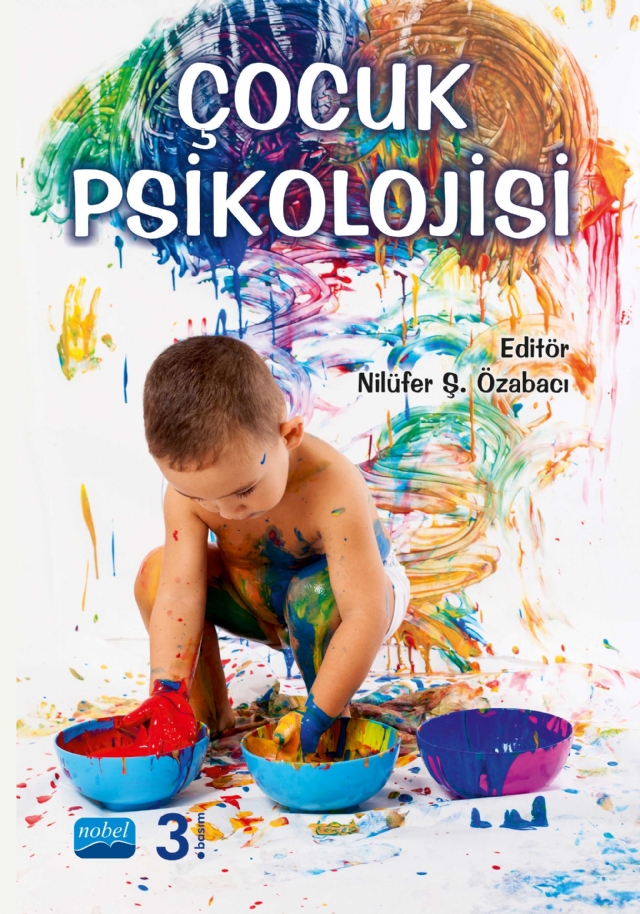
The life of the individual, which begins with his birth, continues with infancy, childhood and school periods. Each semester is a new adventure, a new learning. Childhood, the period in which most things are learned in life, is one of the most special periods of human life. This book has been written to provide parents, psychological counselors, psychologists, teachers, experts and trainees with a detailed examination of the child's development and problems, from the prenatal period to the end of adolescence.
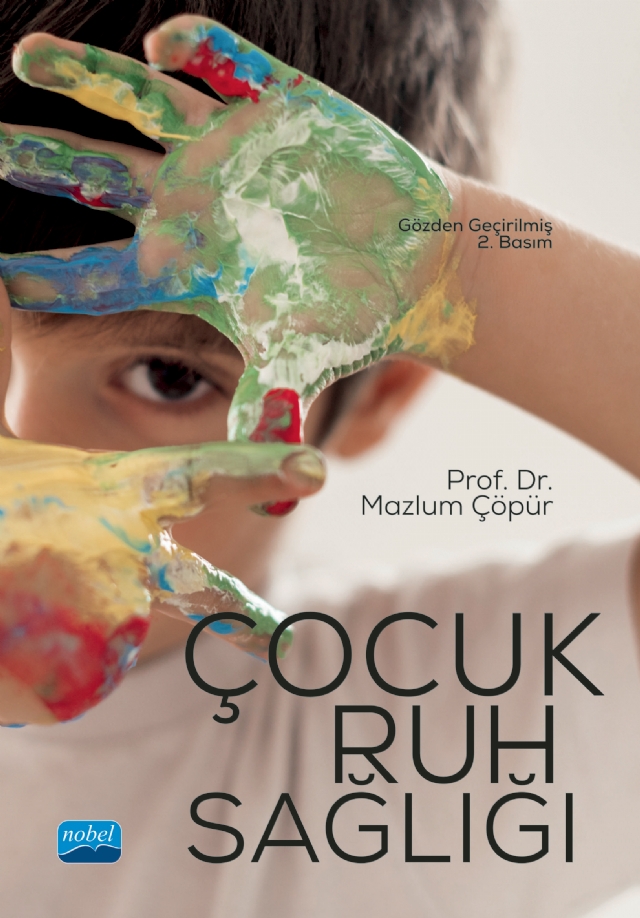
In every society, the main goal is to raise children mentally and physically healthy. Although mental and physical health, the foundation of which is laid in the mother's womb, mutually affect each other, if a person who is in good physical health is not mentally healthy, he does not enjoy life and feels unhappy. Negative events in childhood do not only impair mental health during childhood, but the effects of this continue in adulthood. For this reason, it is the key to raising healthy generations that children's social, emotional and cognitive development, personality and language development progress in accordance with their age, living in harmony with their environment and showing their talents, and feeling themselves as valuable and loved individuals. Knowing how the normal development of children follows and how to continue this course without interruption will enable us to raise mentally healthy children.
For reasons beyond our control, mental health problems may occur in children. Timely detection and treatment of these problems will prevent or minimize permanent damage to children's mental health.
In this book the steps that children go through for a mentally healthy development, the factors affecting their development, and some important and common mental problems are explained. It contains a lot of information, especially for students and teachers of psychological counseling and guidance, child development and psychology departments of universities. It is also hoped that the book will be useful to parents who are interested in the subject.
For reasons beyond our control, mental health problems may occur in children. Timely detection and treatment of these problems will prevent or minimize permanent damage to children's mental health.
In this book the steps that children go through for a mentally healthy development, the factors affecting their development, and some important and common mental problems are explained. It contains a lot of information, especially for students and teachers of psychological counseling and guidance, child development and psychology departments of universities. It is also hoped that the book will be useful to parents who are interested in the subject.
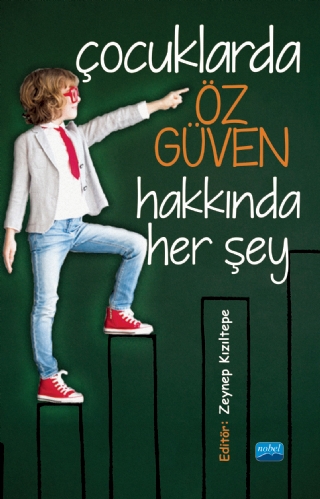
How to raise a self-confident child? How to develop self-confidence? How can we teach our children self-confidence? When our child encounters failure in school life, what can we do so that he can overcome it on his own and his self-confidence is not damaged? What are the responsibilities of parents in raising a self-confident individual? What are the basic principles of raising self-confident, self-sufficient, leader children? In our book, valuable scientists discussed the answers to all these questions within the framework of their expertise; shared their information with us.
Among the topics of our book; how and under what conditions self-confidence develops in the family and at school; There are reasons for the differences in self-confidence among children, what we need to do to gain self-confidence in our children in a balanced way. In addition, in our book, with an overview of the subject of self-confidence, self-confidence in the preschool period, the relationship between sports and self-confidence, self-confidence and awareness, self-confidence and critical thinking, self-confidence in art and mathematics, the connection between self-confidence and well-being and the relationship between self-confidence and well-being. Finally, the excess of self-confidence is included with details, examples and advice to families.
Among the topics of our book; how and under what conditions self-confidence develops in the family and at school; There are reasons for the differences in self-confidence among children, what we need to do to gain self-confidence in our children in a balanced way. In addition, in our book, with an overview of the subject of self-confidence, self-confidence in the preschool period, the relationship between sports and self-confidence, self-confidence and awareness, self-confidence and critical thinking, self-confidence in art and mathematics, the connection between self-confidence and well-being and the relationship between self-confidence and well-being. Finally, the excess of self-confidence is included with details, examples and advice to families.
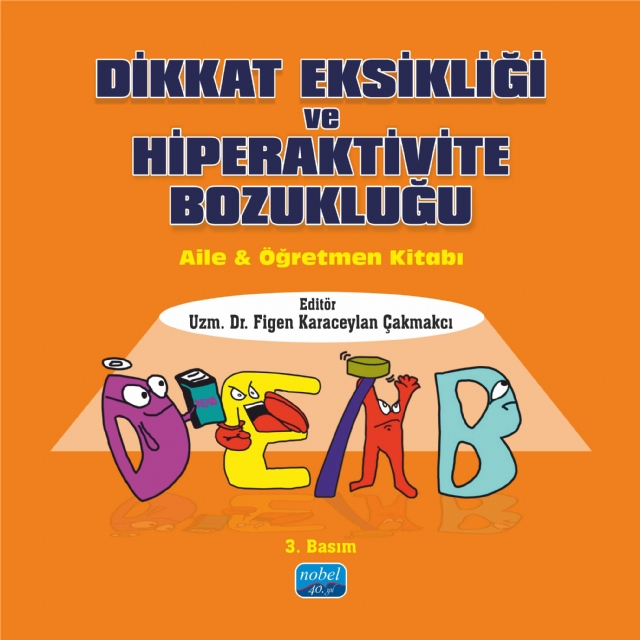
“Attention Deficit Hyperactivity Disorder” (ADHD) is a neuropsychiatric disorder that can disrupt an individual's social life, academic life and family relationships. Although it is a disease that can completely change the future of the child if it is not treated and intervened correctly, satisfactory answers begin to emerge as a result of the right approach and appropriate interventions.
In my 20-year career as a Child and Adolescent Psychiatrist, I have experienced many times that only drug therapy is not sufficient in the treatment of Attention Deficit and Hyperactivity Disorder. The fact that family attitudes and the interventions of the teacher in the classroom are as important as psychopharmacological treatment has motivated me to write such a book.
With this book, it is aimed to inform about the mistakes that we know to be true about Attention Deficit and Hyperactivity Disorder, which is heard by everyone and perhaps defined as today's fashion disease. In addition, it is aimed both to ensure that children with ADHD are understood and to strengthen effective behavior management for families and teachers by providing accurate information and tips to our families and teachers about the relationship between ADHD and learning, which causes misunderstandings and prejudices.
We hope that this book, which offers solutions suitable for the needs of children who are our future, will be a useful resource for everyone who reads it.
In my 20-year career as a Child and Adolescent Psychiatrist, I have experienced many times that only drug therapy is not sufficient in the treatment of Attention Deficit and Hyperactivity Disorder. The fact that family attitudes and the interventions of the teacher in the classroom are as important as psychopharmacological treatment has motivated me to write such a book.
With this book, it is aimed to inform about the mistakes that we know to be true about Attention Deficit and Hyperactivity Disorder, which is heard by everyone and perhaps defined as today's fashion disease. In addition, it is aimed both to ensure that children with ADHD are understood and to strengthen effective behavior management for families and teachers by providing accurate information and tips to our families and teachers about the relationship between ADHD and learning, which causes misunderstandings and prejudices.
We hope that this book, which offers solutions suitable for the needs of children who are our future, will be a useful resource for everyone who reads it.
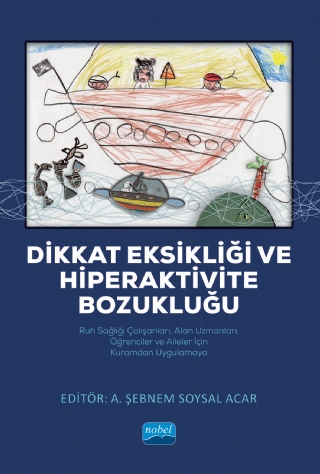
Changing the world is about the way we experience it.
This book, which is a candidate to guide the curious about attention deficit hyperactivity disorder, actually allows us to meet a multi-layered public health problem. The reason why it is different from other books written on this subject so far is hidden in the way it deals with the subject. 96 scientists from 23 different professions tried to embrace today's most common neuropsychiatric disorder by signing 86 chapters. The purpose of this meeting is to draw a general framework for the most common neurodevelopmental problem of childhood, to turn "different" perspectives into "normal". This transdisciplinary meeting is never to reject and/or reduce the problem, but to create a roadmap to use all available resources effectively while struggling with a multi-layered situation.
This book, which is a candidate to guide the curious about attention deficit hyperactivity disorder, actually allows us to meet a multi-layered public health problem. The reason why it is different from other books written on this subject so far is hidden in the way it deals with the subject. 96 scientists from 23 different professions tried to embrace today's most common neuropsychiatric disorder by signing 86 chapters. The purpose of this meeting is to draw a general framework for the most common neurodevelopmental problem of childhood, to turn "different" perspectives into "normal". This transdisciplinary meeting is never to reject and/or reduce the problem, but to create a roadmap to use all available resources effectively while struggling with a multi-layered situation.
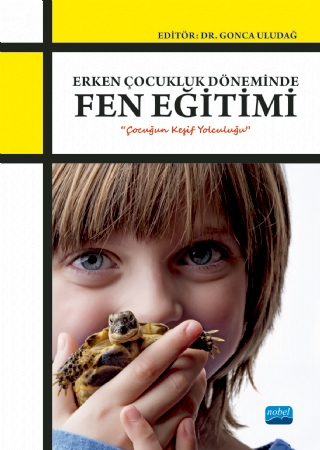
Do you remember what you were curious about when you were a little kid? Where the sun goes at night, how a spider weaves its web, how birds can fly, how our eyes can see, how ships can swim without sinking, how snow is formed, why our shadow is sometimes too long and sometimes too short… Children wonder about all these and much more. . Every experience to seek answers to the questions created by their curiosity is a science-related experience. Because science is life itself.
Curiosity, desire to explore and explore… A child's desire to learn about the world he was born into, the objects around him, matter, people, nature and many other things brings him together with concepts and subjects related to science. Therefore, the need to include science education in early childhood is an important fact. Based on this fact, this book, prepared by academicians who are experts in their fields, includes scientific information on "science education in early childhood", examples of activities, suggestions for teachers and parents, examples from practices in the world and in our country, and various resource suggestions that can be used. Topics covered in the book are:
• Science Education and Its Importance in Early Childhood Period
• Understanding the Nature of Science in Early Childhood
• Interaction of Science with Mathematics, Art, Literature, Literacy, History, Creativity, Technology and Play
• Acquisition of Science Concepts in Early Childhood Period
• Scientific Process Skills
• Use of Thinking Routines in Early Childhood Science Education
• Methods and Techniques in Early Childhood Science Education
• Project Based Approach and Project Examples in Early Childhood Science Education
• Drama in Early Childhood Science Education
• STEM Approach in Early Childhood Science Education
• Coding, Robotic and Computational Thinking in Early Childhood
• The Importance of Making Scientific Explanations in Science Education and Various Subjects
• Planning, Implementation and Evaluation Processes of Science Activities in Early Childhood Education
• The Role of the Teacher in Early Childhood Science Education
• The Role of Parents in Early Childhood Science Education
• The Place of Science Education in Early Childhood Education Approaches
• Early Childhood Science Education Programs
• Environmental Education in Early Childhood Period
• Geography Education in Early Childhood Period
• “Science” with Stories
• “Science Activities” with the Experiences of a Preschool Teacher.
We hope that the book will contribute to valuable researchers working in the field of early childhood education, valuable teachers and teacher candidates, dear parents and all our readers who are interested in the subject, especially our beloved children in early childhood.
Curiosity, desire to explore and explore… A child's desire to learn about the world he was born into, the objects around him, matter, people, nature and many other things brings him together with concepts and subjects related to science. Therefore, the need to include science education in early childhood is an important fact. Based on this fact, this book, prepared by academicians who are experts in their fields, includes scientific information on "science education in early childhood", examples of activities, suggestions for teachers and parents, examples from practices in the world and in our country, and various resource suggestions that can be used. Topics covered in the book are:
• Science Education and Its Importance in Early Childhood Period
• Understanding the Nature of Science in Early Childhood
• Interaction of Science with Mathematics, Art, Literature, Literacy, History, Creativity, Technology and Play
• Acquisition of Science Concepts in Early Childhood Period
• Scientific Process Skills
• Use of Thinking Routines in Early Childhood Science Education
• Methods and Techniques in Early Childhood Science Education
• Project Based Approach and Project Examples in Early Childhood Science Education
• Drama in Early Childhood Science Education
• STEM Approach in Early Childhood Science Education
• Coding, Robotic and Computational Thinking in Early Childhood
• The Importance of Making Scientific Explanations in Science Education and Various Subjects
• Planning, Implementation and Evaluation Processes of Science Activities in Early Childhood Education
• The Role of the Teacher in Early Childhood Science Education
• The Role of Parents in Early Childhood Science Education
• The Place of Science Education in Early Childhood Education Approaches
• Early Childhood Science Education Programs
• Environmental Education in Early Childhood Period
• Geography Education in Early Childhood Period
• “Science” with Stories
• “Science Activities” with the Experiences of a Preschool Teacher.
We hope that the book will contribute to valuable researchers working in the field of early childhood education, valuable teachers and teacher candidates, dear parents and all our readers who are interested in the subject, especially our beloved children in early childhood.

“…This book shows how children's early exposure to nature provides fertile ground for the training of the heart and spirit as well as the mind.”
Dr. Louise Chawla
“…Developing a shared understanding of Forest School practices and cultural structure (ethos) will reassure teachers and help parents understand that their children will enjoy learning through play at Forest School.”
Dr. Frances Harris
“…This book covers important topics that will increase readers' knowledge of practice and theory by focusing on the underlying theories and philosophy of the Forest School and how this approach can contribute to holistic child development.”
Dr. Liz O'Brien
“…The Forest School in the UK is a model assumed to have evolved by those of us lucky enough to be there, building on and discussing the collective background knowledge and experience and cultural contexts we come from, and continues to be shaped and developed by practitioners today.”
Dr. Sarah Knight
“...This book is a handbook that aims to increase the theoretical and practical knowledge of individuals' learning in nature and the approach known worldwide as the Forest School. I think all educators, researchers, parents and people interested in learning in nature with children, learning with nature and learning through nature will find something valuable in this handbook.”
Dr. Mark Leather
“...Children will be our future; they will be the policy makers, the parents, the people who make the decisions that will affect the world we live in. The authors of this book are committed to allowing our children the opportunity to grow and develop and become the best people they can be.”
Sarah Blackwell
Dr. Louise Chawla
“…Developing a shared understanding of Forest School practices and cultural structure (ethos) will reassure teachers and help parents understand that their children will enjoy learning through play at Forest School.”
Dr. Frances Harris
“…This book covers important topics that will increase readers' knowledge of practice and theory by focusing on the underlying theories and philosophy of the Forest School and how this approach can contribute to holistic child development.”
Dr. Liz O'Brien
“…The Forest School in the UK is a model assumed to have evolved by those of us lucky enough to be there, building on and discussing the collective background knowledge and experience and cultural contexts we come from, and continues to be shaped and developed by practitioners today.”
Dr. Sarah Knight
“...This book is a handbook that aims to increase the theoretical and practical knowledge of individuals' learning in nature and the approach known worldwide as the Forest School. I think all educators, researchers, parents and people interested in learning in nature with children, learning with nature and learning through nature will find something valuable in this handbook.”
Dr. Mark Leather
“...Children will be our future; they will be the policy makers, the parents, the people who make the decisions that will affect the world we live in. The authors of this book are committed to allowing our children the opportunity to grow and develop and become the best people they can be.”
Sarah Blackwell

In this book, we set out to bring you comprehensive, up-to-date and scientific information about early childhood education and to bring a contemporary perspective to today's early childhood education practices. Early childhood education, which is the subject of our book, has been prepared for publication with the valuable contributions of competent and successful lecturers and educators from different universities and NGOs in the light of current literature and academic information. The authors, in our book; The importance of early childhood education, its philosophical foundations, early childhood education in the world and in Turkey with a historical flow, early childhood policies, types of institutions, regulations, personnel, teacher qualification and teacher training, early childhood education programs, learning environments, family participation and school - family-society cooperation, documentation and assessment, early childhood development, temperament, parenting and psychological development, special education in early childhood, primary school readiness, early childhood education curriculum models that shape the 20th century, and technology in early childhood.
Our Introduction to Early Childhood Education book is primarily dedicated to our teacher candidates, all educators who care about early childhood education and touch the child, child development specialists, psychological counselors and guidance teachers, special education teachers, parents, in short, all segments of society, but most importantly, to our children, to whom we will entrust our future. making a contribution; We hope that education will be our most important agenda not only today but also "every day" by creating a climate where young generations can create value in their own country and offer a wealth of ideas, focusing on keeping values based on science, freedom of thought and consensus on the path drawn by our great leader Mustafa Kemal ATATÜRK.
Our Introduction to Early Childhood Education book is primarily dedicated to our teacher candidates, all educators who care about early childhood education and touch the child, child development specialists, psychological counselors and guidance teachers, special education teachers, parents, in short, all segments of society, but most importantly, to our children, to whom we will entrust our future. making a contribution; We hope that education will be our most important agenda not only today but also "every day" by creating a climate where young generations can create value in their own country and offer a wealth of ideas, focusing on keeping values based on science, freedom of thought and consensus on the path drawn by our great leader Mustafa Kemal ATATÜRK.
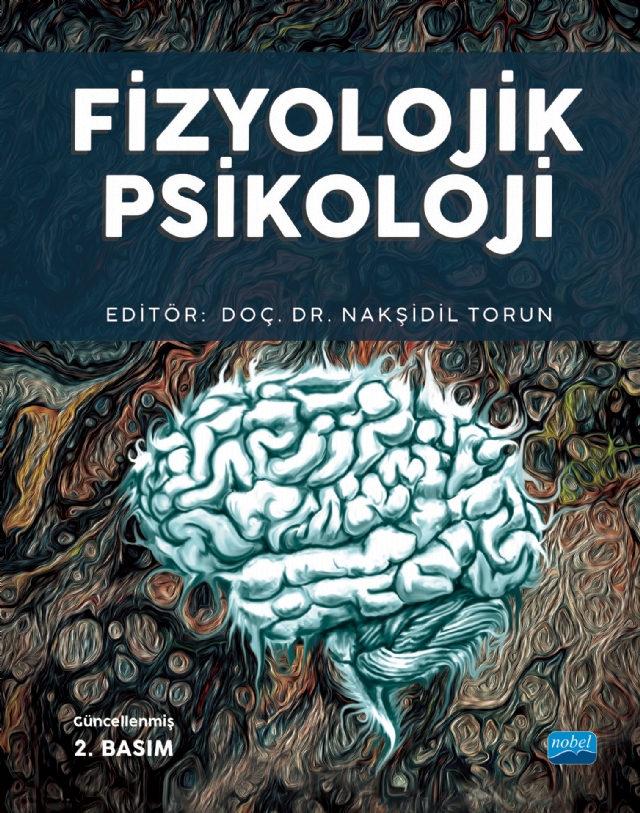
Multidisciplinary research on the biological basis of our behavior is of great interest in our country as well as all over the world. This book, which is an original work in the field of physiological psychology, has been prepared by experts in the field of psychology, neurosciences, physiology, anatomy, neurology, psychiatry, language and speech therapy departments of different universities. In the book, the path from physiological psychology to cognitive neuroscience is genetics, neural transmission, nervous system, brain development, psychopharmacology, visual and non-visual sensory systems, motor system, language, memory, learning, emotions, social cognition, eating-drinking-reproductive behaviors and sleep. topics are covered. In these chapters, firstly, the historical development of the subject is discussed, then the biological mechanisms underlying the behaviors are explained and the subjects are enriched through current studies. In the Physiological Psychology book, which includes the topics at the intersection of physiology, anatomy and psychology, care was taken to include not only Western-based studies but also original studies made in our country. Attention was paid to ensure that the language of the book was fluent, plain and understandable; topics were supported with diagrams, pictures and graphics priority has been given to preparing the chapters in a way that the reader can read with pleasure and easily understand. This book we hope that it will be a resource that will help experts and students working in the fields of psychology, psychological counseling and guidance, psychiatry and neuroscience to discover the biological basis of behavior.
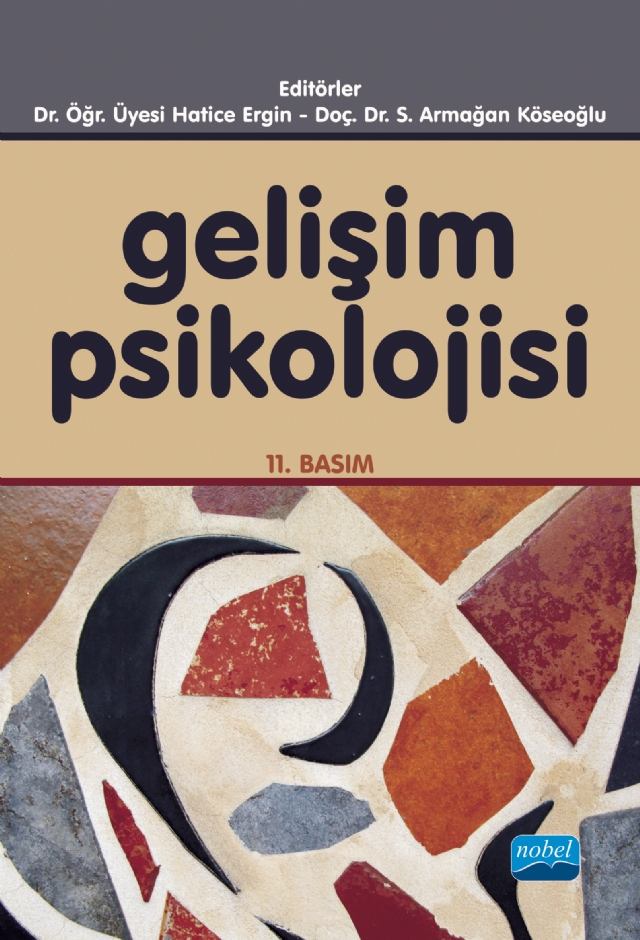
Developmental Psychology; it is a branch of science that examines the characteristics of an individual in various life periods. Developmental psychology, which is based on basic scientific principles and methods; examines the physical, cognitive, emotional and psycho-social changes that an individual experiences throughout his or her life.
In this work; after explaining the theories and research methods in developmental psychology and the basic concepts of development, areas such as physical development, cognitive development, emotional development, self, identity and personality, and moral development are given in order; afterwards, family and school, which affect development, were considered as a system and also the developmental characteristics of children with different individual development were also examined. This book, in which the development is discussed and explained in detail and comprehensively, will be one of the main reference sources to be used in the field.
In this work; after explaining the theories and research methods in developmental psychology and the basic concepts of development, areas such as physical development, cognitive development, emotional development, self, identity and personality, and moral development are given in order; afterwards, family and school, which affect development, were considered as a system and also the developmental characteristics of children with different individual development were also examined. This book, in which the development is discussed and explained in detail and comprehensively, will be one of the main reference sources to be used in the field.
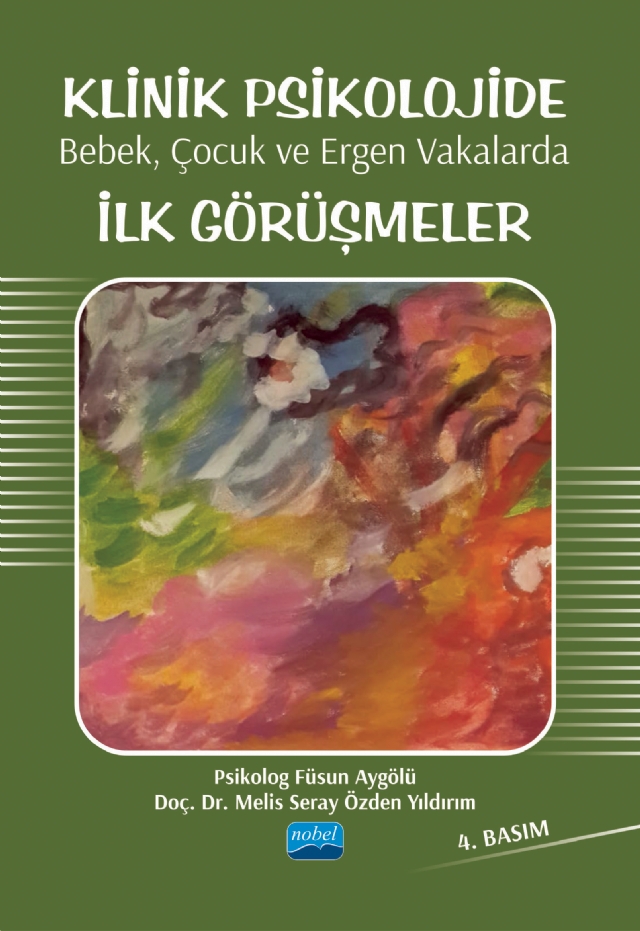
In psychotherapeutic studies with infants, children and adolescents in clinical psychology, the first interview is important both in terms of taking the developmental history of the case and the first relationship established. In the first interviews, it can be determined how the therapeutic process will be shaped in the future and with which approach the therapy will continue.
The purpose of writing this book is to contribute to our colleagues working in the field by bringing together theory and practice with the case sharing of psychologists working in the clinical field. In the book; Fifteen case examples are presented, inspired by the first interviews made with infant, child and adolescent clients during three years of supervision.
The purpose of writing this book is to contribute to our colleagues working in the field by bringing together theory and practice with the case sharing of psychologists working in the clinical field. In the book; Fifteen case examples are presented, inspired by the first interviews made with infant, child and adolescent clients during three years of supervision.
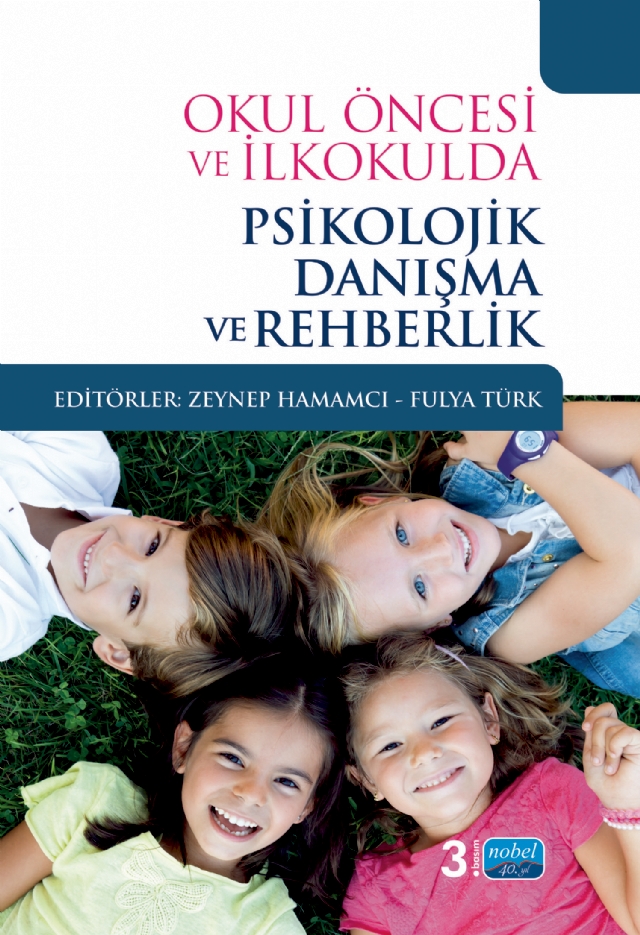
This book; it has been prepared to support psychological counselors who work with children, guide them, and touch their lives, and try to contribute to the smile of the beautiful eyes of children and to help them with their knowledge and practices. In addition, it is thought to be an important resource for psychologists, psychiatrists, pedagogues, child development specialists, preschool and primary school teachers working with children. In this book, psychological counselors working in pre-school and primary schools are presented with the information they will need while working with children, and the issues that will facilitate their practice, by enriching them with examples. While writing the book, pre-school and primary school children were taken as a basis; In particular, it has been tried to include the features, problems, approaches and solutions specific to this age group. Our aim is to help those who touch the lives of children, even for a little bit. For this reason, we hope that it will contribute to all psychological counselors, specialists working with children and counselor candidates.
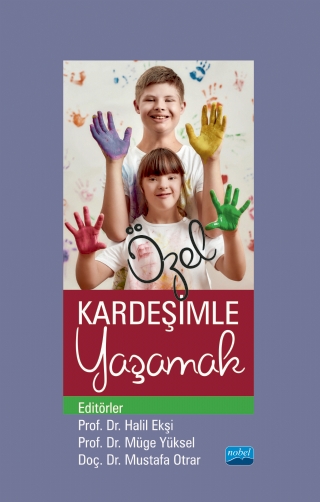
It is obvious that the presence of a child with special needs at home affects all family members. The financial and moral efforts of parents to support the developmental processes of their children can sometimes lead to very tiring experiences. During this time, the needs of siblings with normal development also appear, but these needs can be ignored. It should not be forgotten that having a sibling with special needs can affect a child with normal development from career choice to character. When the domestic and international literature is examined, it is seen that support groups, psychological counseling and guidance activities are mostly focused on parents, but there is not much work on siblings. The book "Living with My Special Sister", whose main purpose is to fill this gap, includes a psychoeducation program to support secondary and high school students with special needs siblings in their problems, as well as psychological counselors, psychologists, special education specialists who work/will work in the field within the scope of rehabilitation counseling. and aims to be a guide for social workers. In the five different chapters in the book, a content that will provide clues about both the social perspective and the emotions experienced by family members and their coping methods is aimed. This study, which is planned without forgetting that the sibling with normal development, as well as the parents, has a common denominator, will further strengthen the family system.
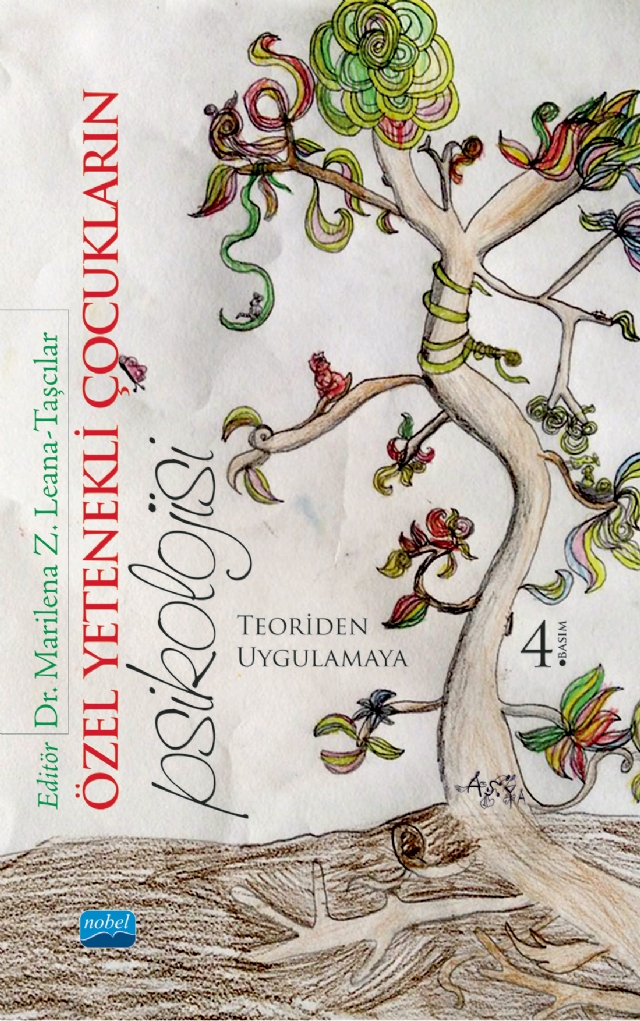
The education of gifted and talented students, or as it has been called until today, is an area that has been known for a long time and is being developed. However, most of the studies carried out in our country focus mainly on meeting the educational needs of gifted children. Problems such as motivation, perfectionism, and math anxiety experienced by gifted children, their reflections on educational processes, and offering solutions such as bibliotherapy that can be used in support training rooms for these problems are issues that are not emphasized much. Therefore, this book; It aims to raise awareness of teacher candidates, teachers working in this field, psychological counselors, psychologists and parents of gifted children on these issues. For this purpose, academic theses and studies on the emotional problems of gifted children have been provided to you in a simpler language.
The common wish of all authors is to contribute to your being a high-aware supporter of the issues that our special talented/gifted children have emotional difficulties. We invite you to discover the inner worlds of gifted children! Happy reading….
The common wish of all authors is to contribute to your being a high-aware supporter of the issues that our special talented/gifted children have emotional difficulties. We invite you to discover the inner worlds of gifted children! Happy reading….

“My teachers; They said my mind was slow, that I was antisocial, and that I'd be dazed by my stupid dreams until I died."
Albert Einstein – Scientist
Specific Learning Disability (SLD); It is a neurobiologically based disorder that is often noticed with the beginning of the child's academic life, but if it is not detected and intervened by specialists, its lifelong effect compels the person to struggle in all areas of his life, and genetic and environmental factors are effective. The definition of "DYSLExia" is used more often than "Specific Learning Disorder", as it is often defined as only the difficulty experienced in the "reading" skill.
Although it is sometimes defined as "disorder", sometimes "disease", sometimes "difficulty", sometimes "difference", it is a condition independent of intelligence that seriously affects both social and academic life of the individual, but in some cases it is a mis-perceived "intelligence retardation". is a hassle.
ÖÖG; Since it is a difficulty that affects language development and use, verbal and written expression, literacy and mathematics skills, it can lead to school failure and additional school adjustment problems. Considering the importance of school life in the child's mental development, when not correctly detected and intervened, the accompanying Attention Deficit and Hyperactivity Disorder, Anxiety Disorders and Behavioral Disorders are often overlooked comorbid conditions and pave the way for the child to experience emotional trauma.
As a result of nearly 10 years of experience and experience, it was decided to write this book. Practical practices of a team of Child and Adolescent Psychiatrists and Child Psychologists were shared. I hope it will be used as a reference book about what are known to be true about SLD, the importance of early detection and correct intervention, and what the legal rights of the child with SLD are…
Albert Einstein – Scientist
Specific Learning Disability (SLD); It is a neurobiologically based disorder that is often noticed with the beginning of the child's academic life, but if it is not detected and intervened by specialists, its lifelong effect compels the person to struggle in all areas of his life, and genetic and environmental factors are effective. The definition of "DYSLExia" is used more often than "Specific Learning Disorder", as it is often defined as only the difficulty experienced in the "reading" skill.
Although it is sometimes defined as "disorder", sometimes "disease", sometimes "difficulty", sometimes "difference", it is a condition independent of intelligence that seriously affects both social and academic life of the individual, but in some cases it is a mis-perceived "intelligence retardation". is a hassle.
ÖÖG; Since it is a difficulty that affects language development and use, verbal and written expression, literacy and mathematics skills, it can lead to school failure and additional school adjustment problems. Considering the importance of school life in the child's mental development, when not correctly detected and intervened, the accompanying Attention Deficit and Hyperactivity Disorder, Anxiety Disorders and Behavioral Disorders are often overlooked comorbid conditions and pave the way for the child to experience emotional trauma.
As a result of nearly 10 years of experience and experience, it was decided to write this book. Practical practices of a team of Child and Adolescent Psychiatrists and Child Psychologists were shared. I hope it will be used as a reference book about what are known to be true about SLD, the importance of early detection and correct intervention, and what the legal rights of the child with SLD are…

This book was written to contribute to the formation of social awareness in this field by presenting the characteristics of gifted children and their education from different perspectives.
The main target audience of the book; parents, teachers, university students, academics and politicians who have gifted children.
The information in the book, related literature; It is supported by the statements of gifted children, teachers, mothers and fathers.
Some of the questions you can find answers to in the book are:
• What characteristics do gifted children have?
• How are gifted children recognized?
• What is the number of gifted people in Turkey?
• What are the needs of gifted children?
• Which models are used in the education of the gifted?
• What are the problems experienced by gifted children?
• How can these children be happy?
• What can teachers do in the education of these children?
• What can we do as families?
• What policies should be developed for these children?
The main target audience of the book; parents, teachers, university students, academics and politicians who have gifted children.
The information in the book, related literature; It is supported by the statements of gifted children, teachers, mothers and fathers.
Some of the questions you can find answers to in the book are:
• What characteristics do gifted children have?
• How are gifted children recognized?
• What is the number of gifted people in Turkey?
• What are the needs of gifted children?
• Which models are used in the education of the gifted?
• What are the problems experienced by gifted children?
• How can these children be happy?
• What can teachers do in the education of these children?
• What can we do as families?
• What policies should be developed for these children?